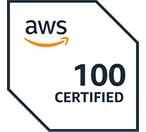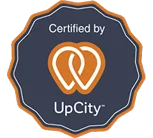When potential customers search for a product, service, or information online, search engines like Google, Bing, and Yahoo, provide a list of relevant websites based on various factors. As a result, search engine positioning plays a crucial role in a business’s digital marketing success, as being at the top of the results page increases your visibility and helps drive traffic to your website.
In this article, we will discuss the importance of search engine optimization (SEO) and search engine positioning., and identify the top search ranking factors and challenges associated with SEO. Keep reading to learn more.
Table of Contents
What Is Search Engine Optimization?
Search engine optimization – or SEO – refers to the process of improving your website’s rankings on the results page in order to increase its organic traffic. It involves optimizing your site’s structure, content, keywords, and user experience to show search engines that your website is trustworthy, authoritative, and deserving of the top position on the results page.
Why Is Search Engine Positioning Important?
Being listed at the top of search engines ensures a website is more visible and able to be discovered by relevant users. This results in an opportunity to attract potential customers who are actively seeking information, products, or services related to your business. As they click through to your website, the likelihood of converting them into sales or loyal brand followers also increases.
Additionally, being on the first page of search engines will enhance the trust and credibility of your business. This is because sites that appear at the top of the results page are perceived as more reliable and reputable, as they are highly relevant to user searches.
Top 5 Search Engine Ranking Factors
In order to strategize for search engine optimization, it’s important to understand the factors that search engines use to determine which sites are most relevant to a user’s search query. Although search algorithms are frequently updated, these factors continue to have an impact on search engine rankings.
Keyword Usage
Search engines analyze keywords in a website’s content because it depicts relevance to a search query. By understanding the keywords used by searchers, it allows you to create and optimize your content to directly address their needs.
In terms of competition, keywords help develop strategies that can set you apart from other companies in your industry. For instance, businesses can use keywords to gather valuable insights into what others are focusing on and uncover underutilized keyword searches. This will ultimately help you better target users that are most likely to be converted into customers.
Mobile-Friendliness
More and more people are using their mobile phones for internet searches due to the increased popularity of smartphones and tablets in recent years. In fact, thanks to the speed, convenience and accessibility of these devices, mobile search accounts for 63% of Google’s organic search traffic in the US.
Considering the dominance of mobile search, search engines prioritize the mobile version of sites when they crawl them. A responsive design and easy navigation provide a positive user experience, and will ultimately improve your chances of ranking higher, increasing traffic, and driving conversions.
Bounce Rate
Bounce rate is a metric that indicates the percentage of website visitors that quickly leave after visiting a single page without performing further actions like clicking on a link or making a purchase.
A high bounce rate typically indicates that the user does not find the content relevant to their intent, signaling a poor experience to search engines and negatively impacting your rankings. Other factors that might result in a high bounce rate are slow page speed, poorly designed web pages, irrelevant content, and lack of mobile-friendliness.
Metainfo
Information that provides search engines with a description and context of what your content is all about is called metadata. These include:
- Title Tag: A title tag is an HTML element that appears as a clickable link in the search engine results page.
- Meta-Descriptions: Meta-descriptions refer to the brief summaries that appear below a title tag.
- Image Tags and Alt Tags: These are textual descriptions of images and links that help search engines understand your content.
- Schema Markup: A structured data vocabulary that provides context about your content, schema markup enables rich snippets on the results page, which can increase click-through rates for your site.
It’s important to properly optimize these elements, as they provide summaries and additional information to assist search engines in indexing and ranking your web page. As a result, it’s essential to make these elements compelling and engaging in order to effectively increase click rates and boost your page’s rankings.
User Experience
The main goal of search engines is to provide users with relevant and high-quality results that would satisfy their needs. When ranking sites, the overall user experience is taken into account because it signifies that the site’s content matches their search intent.
User experience involves your core web vitals, such as the site’s speed, responsiveness, and visual stability. Aside from this, it also involves well-planned access to information, consistent browser experience, proper handling of web errors, and an appealing website design.
By optimizing these factors, you can ensure a smooth browsing experience for your visitors, leading to higher user satisfaction and improved search rankings.
Which Search Engine Should You Focus On?
When it comes to search engine optimization, deciding which search engine to focus on is an important factor. Each one has its own characteristics and user base, so understanding their pros and cons can help you make an informed decision.
It’s easy to conclude that Google is the dominant player in the search engine world. In fact, as of April 2023, its global market share totals up to 92.61 percent. And, with billions of daily searches made on the platform, focusing on Google will give you an opportunity to reach a wide audience.
In addition to its massive popularity, Google uses powerful indexing methods that make it effective in organizing and ranking web pages. It can also display product snippets, informative graphs, and other interactive elements like the “People also ask” section, offering increased visibility and click-through rates.
While Google is a preferred choice for web owners and users alike, it’s important to note that it also has its challenges. Because of its wider reach, competition against other websites is much more fierce, especially for highly competitive keywords. Its constant algorithm updates will also require more effort to strategize and keep up with the latest SEO trends.
Bing
Although Google holds the largest market share among other search engines, Bing has dominance in certain demographics and niche markets like finance, technology, and healthcare. This is likely due to the fact that it caters to a more mature audience, with 57% of users having children at home and 53% of whom are married.
Bing is also the default search engine for Microsoft devices, including Windows computers and Xbox consoles, ensuring a competitive advantage in certain industries. Because of its less competitive landscape, Bing provides businesses an opportunity to rank higher with less effort and lower costs.
The main disadvantage of focusing on Bing would be the lower market share compared to Google, meaning you might be visible to a smaller audience. Certain features and search algorithms are also different, so you will have to strategize based on Bing’s requirements.
Yahoo
Yahoo used to be the dominant search engine back in the 2000s but has drastically lost its market share over the years to top competitor Google. As of 2023, its global market share is at 1.1%, with around 700 million visitors per month.
Perhaps the biggest advantage of focusing on Yahoo is its partnership with Bing. Because Yahoo search results are powered by Bing, optimizing for either of these search engines gives you an opportunity to be visible to the other. Due to its declining user base, however, focusing on Yahoo might not reap as many rewards as Google and Bing, potentially limiting your reach.
Challenges of SEO
Search Engine Optimization (SEO) is critical in increasing a website’s visibility; therefore, proper strategizing is required in order to be successful. It goes without saying that more and more businesses are vying for higher rankings, and along with these come challenges.
Changing Algorithms
With over nine major updates in 2022 alone, the constant changes in search engine algorithms are one of the primary challenges in SEO. This is because each update significantly impacts search engine rankings, making it difficult for website owners to determine which parameters to optimize for.
What may have been effective SEO practices yesterday might not yield the same results tomorrow. As a result, keeping up with these changes and understanding their implications is a constant challenge for SEO practitioners.
Artificial Intelligence
The launch of revolutionary AI programs like ChatGPT, Bard, and Copilot has also changed the way search engines understand and rank web pages.
Search engines now consider various factors like user intent, context, and expertise to provide more accurate search results. While AI has improved the search experience for users, it poses a challenge for SEO professionals who need to adapt their strategies to align with AI-driven mechanisms.
SEO Maintenance
Achieving a favorable search engine position is a tedious and constant process that involves continuously monitoring and optimizing your website to maintain or improve your search rankings.
This includes activities such as content updates, keyword research, link building, technical SEO optimizations, and staying up to date with the latest trends and best practices. SEO maintenance also requires a significant investment of time, resources, and expertise.
Development Issues
Factors like website speed, mobile-friendliness, crawlability, site architecture, and structured data implementation are crucial for search engines to understand and rank a website effectively. However, development issues such as poor coding practices, broken links, duplicate content, and accessibility problems can hinder a website’s visibility in search results.
Coordinating with web developers and ensuring that the website’s technical aspects align with SEO requirements can be a challenge, especially for businesses with limited technical expertise or tight development budgets.
SEO Solutions From Idea Maker
Understanding search engine positioning and the challenges it presents is vital for businesses and digital marketers aiming to achieve visibility to a wider audience.
So, if you’re looking for effective and tailored SEO strategies, give us a call, and our team of professionals can help you optimize your website, boost your organic traffic, and stay ahead in the digital landscape.













